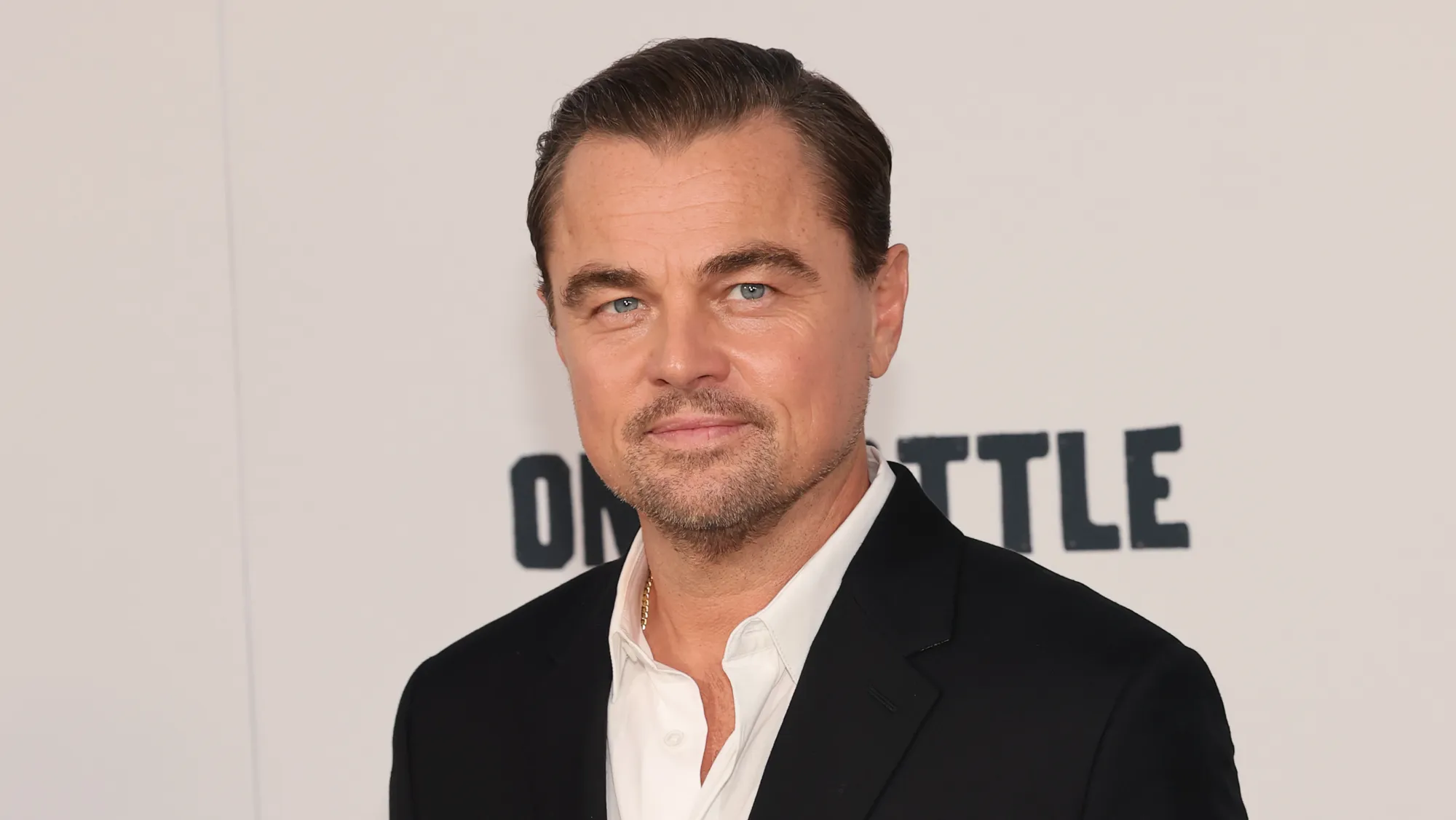Leonardo DiCaprio – The Timeless Star of Modern Cinema
Few names in Hollywood shine as brightly or endure as long as Leonardo DiCaprio. More than just an actor, he is a storyteller, an activist, and a cultural force who has shaped the film industry for over three decades. His journey from a curious child actor in the 1990s to one of the most respected performers of his generation is nothing short of remarkable.
What sets DiCaprio apart is not just his immense talent, but his unwavering dedication to authenticity — in both his craft and his life. Each role he chooses, each cause he champions, reflects a man driven by depth, purpose, and conviction. This article explores the story of Leonardo DiCaprio — the boy who dreamed big, the actor who redefined Hollywood, and the human being who continues to make a difference beyond the screen.
The Early Days: A Dream Born in Los Angeles
Leonardo Wilhelm DiCaprio was born on November 11, 1974, in Los Angeles, California. Raised by his mother, Irmelin, after his parents separated when he was a baby, young Leo grew up in a modest environment. His early years were filled with challenges — rough neighborhoods, limited resources, and the constant hustle of his mother, who worked tirelessly to support him.
Despite these circumstances, creativity flourished in their small household. His father, George DiCaprio, was an underground comic book artist who encouraged Leo’s imagination. From a young age, he was drawn to storytelling and performance. He would mimic characters, imitate voices, and dream of one day being on screen.
By the time he was a teenager, that dream began to take shape. Leonardo started auditioning for commercials and television roles, appearing in small parts in series like Growing Pains. His natural charisma and intense emotional range quickly made him stand out.
The Breakthrough: A Star Is Born
Every legendary actor has a defining moment — a role that transforms them from a promising newcomer to an undeniable star. For Leonardo DiCaprio, that moment came in 1993 with What’s Eating Gilbert Grape. Playing Arnie Grape, a mentally challenged boy, DiCaprio delivered a performance of rare sensitivity and realism. It earned him his first Academy Award nomination at just 19 years old.
Critics and audiences were captivated. This was not a typical young heartthrob role — it was raw, nuanced, and deeply human. It marked the arrival of a serious actor who wasn’t afraid to take risks.
From there, his career ascended rapidly. In 1996, he played a modern-day Romeo in Romeo + Juliet, captivating a new generation of fans. But it was the following year, with Titanic, that Leonardo DiCaprio became a global phenomenon.
The Titanic Effect: Fame Beyond Measure
When Titanic was released in 1997, it wasn’t just a movie — it was a cultural event. As Jack Dawson, the free-spirited artist who falls in love aboard the doomed ship, Leonardo DiCaprio captured hearts around the world. The film became one of the highest-grossing movies in history, and “Leo-mania” swept across continents.
Suddenly, DiCaprio was everywhere — on magazine covers, talk shows, posters, and fan letters flooding in by the millions. Yet, instead of embracing celebrity culture, he resisted it. Fame, he once said, was a distraction. What mattered most to him was the work.
This mindset would define his career. Rather than chasing blockbuster roles, DiCaprio turned toward films that challenged him as an artist.
Reinvention and Collaboration with Great Directors
After Titanic, Leonardo DiCaprio could have easily coasted on his fame. But he took a different path — one marked by artistic ambition and a refusal to be typecast.
His partnership with director Martin Scorsese became one of the most celebrated collaborations in modern cinema. Together, they created masterpieces like Gangs of New York, The Aviator, The Departed, Shutter Island, and The Wolf of Wall Street. Each film revealed a new dimension of DiCaprio’s talent — from ruthless power to fragile humanity.
Under Scorsese’s direction, he learned to channel intensity into layered, complex performances. The partnership mirrored the legendary relationship Scorsese once had with Robert De Niro, another of DiCaprio’s great influences.
Other collaborations — with directors like Quentin Tarantino (Django Unchained, Once Upon a Time in Hollywood) and Christopher Nolan (Inception) — further cemented his reputation as an actor who thrives in ambitious, thought-provoking projects.
The Long Road to Oscar Glory
For years, Leonardo DiCaprio was famously known as “the man who couldn’t win an Oscar.” Despite multiple nominations and unforgettable performances, the golden statue remained elusive. Fans turned his quest for the Academy Award into a pop-culture phenomenon, complete with memes and global anticipation every awards season.
Finally, in 2016, the wait ended. His portrayal of Hugh Glass in The Revenant — a grueling survival epic — earned him the Best Actor Oscar. The victory was celebrated worldwide, not just as a professional milestone, but as validation for decades of relentless dedication.
In his acceptance speech, DiCaprio used the moment to highlight one of his greatest passions: environmental activism. “Climate change is real,” he declared. “It is happening right now.” That speech reflected the evolution of Leonardo DiCaprio from movie star to global advocate.
Beyond Acting: The Environmentalist and Humanitarian
While many celebrities champion causes, few commit as fully as DiCaprio. For over two decades, he has been one of the most vocal advocates for climate action and wildlife conservation.
In 1998, at just 24 years old, he founded the Leonardo DiCaprio Foundation, dedicated to protecting endangered species, restoring ecosystems, and promoting renewable energy. Through the foundation, he has donated millions of dollars to environmental projects worldwide.
His documentaries — such as Before the Flood and Ice on Fire — educate and inspire audiences to take climate change seriously. He has spoken at the United Nations, met with global leaders, and used his influence to drive meaningful change.
What’s striking is that his advocacy is not a publicity stunt. It’s a calling. The same passion he brings to his roles is evident in his activism. He is proof that celebrity can be a force for good when used responsibly.
Leonardo DiCaprio’s Legacy of Excellence
What makes Leonardo DiCaprio truly extraordinary is his consistency. He has managed to remain relevant across generations — from the 1990s heartthrob to the modern symbol of integrity and excellence. Few actors have balanced fame and artistry so gracefully.
His filmography reads like a masterclass in modern cinema. Each performance — whether it’s the ruthless Jordan Belfort in The Wolf of Wall Street or the tortured dream thief in Inception — reflects his ability to disappear into a role. His dedication to realism often pushes him to extremes: sleeping inside animal carcasses, enduring freezing conditions, or spending months researching historical figures.
This commitment is what separates him from others. He doesn’t simply play characters; he becomes them.
The Personal Side: Privacy and Passion
Despite his fame, Leonardo DiCaprio has always guarded his private life. He rarely speaks about his relationships and avoids social media. For him, privacy is essential to maintaining authenticity in his work.
Outside of acting and activism, he’s an avid traveler, art collector, and philanthropist. He enjoys a circle of close friends, many of whom — like Tobey Maguire — have been with him since his early Hollywood days.
DiCaprio’s life, though glamorous from the outside, remains grounded in discipline and purpose. He is known for living responsibly, advocating for sustainability, and choosing projects that align with his values.
Lessons from Leonardo DiCaprio’s Journey
There’s much more to learn from DiCaprio than just acting brilliance. His story is one of perseverance, vision, and growth.
- Choose Purpose Over Popularity: After Titanic, he could have pursued fame, but he chose meaningful work instead.
- Be Relentlessly Curious: Every role he takes is a study in human psychology and storytelling.
- Use Influence for Good: His environmental work shows that true legacy comes from giving back.
- Stay Authentic: Despite fame, he’s stayed grounded, letting his craft define him — not gossip.
These lessons make his journey universally inspiring, not just for artists but for anyone striving for excellence.
The Legacy of Leonardo DiCaprio
Today, Leonardo DiCaprio stands as one of the last great movie stars in an era dominated by franchises and streaming. His name still draws audiences to theaters — not because of spectacle, but because of trust. When DiCaprio is in a film, you expect depth, quality, and commitment.
He has transcended celebrity to become a symbol of artistry and activism. His choices — both personal and professional — remind us that success is not just about fame or fortune, but about purpose, integrity, and impact.
Conclusion
From his modest beginnings in Los Angeles to his global status as an Oscar-winning actor and humanitarian, Leonardo DiCaprio represents the best of what Hollywood can be. He’s more than a performer; he’s a storyteller whose work reflects the complexities of the human spirit.
Through his films, he makes us feel — joy, fear, hope, and empathy. Through his activism, he reminds us that the world we live in deserves care and action. His legacy is not defined by trophies or box office records, but by his unwavering commitment to truth — both on and off the screen.
Leonardo DiCaprio is not just an actor. He is an idea — that talent, when guided by purpose, can change the world.




